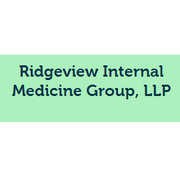A Brief Guide to High Cholesterol Levels

While it’s easy to tell when you have a rash or a broken bone, any illnesses inside your body aren’t always apparent. For example, high cholesterol can easily lead to heart problems, but you won’t know if you have it until you get a blood test. If you’re hoping to learn more about this condition and how to avoid it, take a look at this preventive care guide.
Why You Might Be at Risk for High Cholesterol
Family History
In some cases, high cholesterol is inherited from previous generations. Ask your parents, grandparents, and aunts and uncles if they have high cholesterol, so you can relay your family’s history to your preventive care doctor. If high cholesterol runs in your family, your body’s cells might be inefficient at eliminating cholesterol from the blood, or your liver might be churning out too much cholesterol.
Lifestyle Habits
Aside from genetics, your lifestyle habits will significantly affect your risk level. Those who have a high body mass index over 30 and consume an unhealthy diet are more likely to suffer from high cholesterol. More specifically, processed foods like chips, store-bought cookies, and microwave popcorn are known to increase cholesterol levels. The consumption of fried foods, red meat, and saturated oils will also contribute to this condition.
People who smoke are at an increased risk of high cholesterol, as cigarettes can deteriorate the blood vessels. Essentially, smoking makes the blood more viscous, or sticky, which makes it harder for the heart to pump blood through the veins. This makes it easier for fatty deposits to build up along the inner walls of the arteries. Smoking also causes the blood to carry less oxygen during exercise, which can make working out more difficult. In turn, a lack of regular exercise can contribute to higher cholesterol levels.
Age
 The liver removes cholesterol from the body. The older you get, the harder it will be for this organ to remove cholesterol on its own, so your risk of high cholesterol elevates with age. Plus, the more tobacco products, alcohol, and unhealthy foods you consume, the harder your liver has to work.
The liver removes cholesterol from the body. The older you get, the harder it will be for this organ to remove cholesterol on its own, so your risk of high cholesterol elevates with age. Plus, the more tobacco products, alcohol, and unhealthy foods you consume, the harder your liver has to work.
How High Cholesterol Affects the Body
LDL vs. HDL Cholesterol
There are two types of cholesterol in the body: low- and high-density lipoproteins. Low-density lipoproteins (LDL) are what doctors refer to when they say you have “high cholesterol”—you don’t want too much of this “bad” cholesterol in the body. High-density lipoproteins (HDL) are considered “good,” as they are responsible for gathering the LDLs and transporting them to the liver for removal.
HDL cholesterol is found in unsaturated fats. This includes nuts like almonds and chia seeds, as well as avocados, vegetable oils, and fatty fish, such as salmon. LDL cholesterol is found in saturated fats, such as red meats like pork and lamb. It’s also found in trans fats like packaged donuts, cakes, and frosting.
Plaque
LDL cholesterol is a fat-like substance that latches onto proteins in your blood. If there is too much bad cholesterol in the body, these fatty acids will become oxidized and damage the inner walls of your arteries. This will cause plaque to form. Once this substance builds up, it will narrow your arteries, causing them to get harder and tighter. This reduces the amount of blood that can pass through.
Heart Attack & Stroke
 Many people with high cholesterol start to experience chest pain due to the strain on their hearts. If cholesterol levels don’t decrease, the plaque will get tougher and thicker, like scar tissue along the inside of the artery wall.
Many people with high cholesterol start to experience chest pain due to the strain on their hearts. If cholesterol levels don’t decrease, the plaque will get tougher and thicker, like scar tissue along the inside of the artery wall.
Eventually, plaque can rupture, releasing a blood clot. If the blood clot gets stuck in the circulatory system, it could cause a heart attack. If it lands in the brain, you will experience a stroke.
How to Prevent High Cholesterol
Preventive Care Assessment
If you have a family history of high cholesterol or believe your lifestyle puts you at risk, it’s best to see a doctor for preventive care. Your doctor will perform routine blood tests to monitor your cholesterol level and offer suggestions on how to lower it.
If you are a man age 20 or older, your HDL level should be above 40. For women age 20 and older, it should be over 50. When it comes to LDL cholesterol, both men and women age 20 and older should have less than 100 mg in their test results.
Diet
At first, your doctor will likely suggest a healthier diet. They might recommend minor changes, such as cutting out bacon, fried food, and processed snacks. If your cholesterol is extremely high, or you’re experiencing heart problems, they may suggest a more strict diet such as the DASH (Dietary Approaches to Stop Hypertension) eating plan. This plan was developed by the National Institute of Health to reduce hypertension, or high blood pressure, which is closely tied to high cholesterol.
In general, heart-healthy diets focus on increasing your fiber intake, such as from apples, leafy greens, beans, and whole grains. They also incorporate a limited amount of healthy fats, such as olive oil and avocado, and reliable sources of lean protein like fish, chicken breast, and nuts. On these diets, you can enjoy plenty of whole grains, such as oatmeal, quinoa, and brown rice.
On the other hand, these diets encourage participants to avoid added sugar from soda, candy, and desserts, as well as excess amounts of salt found in junk food, canned soups, and certain seasonings. To lower your LDL cholesterol, experts recommend cutting out trans fats from your diet entirely.
Exercise
 If you don’t lead an active lifestyle, your doctor may recommend regular exercise, such as a brisk walk three times a week. If joint pain or mobility issues are preventing you from working out, consider swimming laps or doing water aerobics. You can also choose more captivating options such as dance classes to get your heart rate up.
If you don’t lead an active lifestyle, your doctor may recommend regular exercise, such as a brisk walk three times a week. If joint pain or mobility issues are preventing you from working out, consider swimming laps or doing water aerobics. You can also choose more captivating options such as dance classes to get your heart rate up.
Tobacco & Alcohol Use
To round out your low-cholesterol plan, your doctor may advise you to quit smoking and significantly decrease your alcohol consumption. While smoking increases “bad” cholesterol, some research has connected the plant chemicals in red wine to a decreased risk of heart disease. Still, your doctor will recommend consuming wine in moderation. Women should stick to no more than one glass a night, while men are allowed two glasses.
Medication
If your cholesterol levels aren’t going down, your doctor may prescribe medication. The most common prescriptions for this condition are called statins, and they work by lowering LDL cholesterol and triglycerides and slightly raising HDL cholesterol levels. There are also bile acid resin medications, which once inside your intestines, stop the cholesterol-rich bile from your liver from returning to your bloodstream.
To have your cholesterol levels tested, reach out to Ridgeview Internal Medicine Group, LLP. This Rochester, NY, health center is proud to provide preventive care, so you can stay one step ahead of serious health risks. They’ve been practicing since 1992, and they’re committed to using cutting-edge technology to achieve accurate results. To learn more about their preventive care services, visit them online. You can also call (585) 342-3870 to schedule an appointment.
About the Business
(11 reviews)
Have a question? Ask the experts!
Send your question

